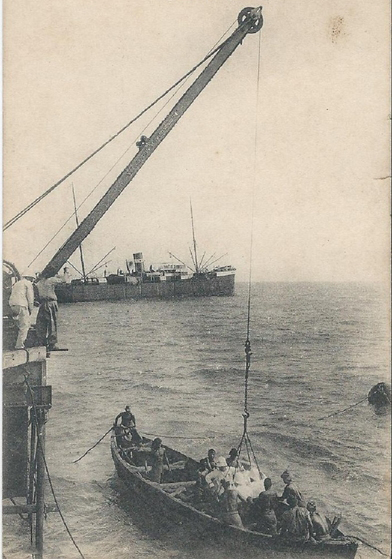1892
A large wharf that will be in use for 70 years is completed in Cotonou by French authorities, in preparation for the Second Dahomey War of colonial conquest. Goods and passengers alike are hoisted to and from rowboats by a steam wench. The boats travel to and from ships anchored beyond the sandbars.














